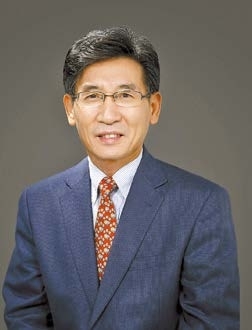

A TOTAL of 25 projects and one individual from Shenzhen won prizes at the 2023 national science and technology awards ceremony held at Beijing on Monday, setting a new record. Xue Qikun, president of the Southern University of Science and Technology (SUSTech) in Shenzhen, won the 2023 State Preeminent Science and Technology Award, China’s top scientific honor. The 25 winning projects, led by or involving Shenzhen, covered various categories including one in natural sciences, seven in technological inventions, and 17 in technological advancements. This success underscores Shenzhen’s increasing capability in scientific innovation, showcasing significant progress in implementing a strategy for innovation-driven development and achieving remarkable results in high-level technological independence and strength. These projects spanned high-tech sectors like electronics and information, life sciences, advanced manufacturing, resources and the environment, and new materials. Notably, the electronics and information sector accounted for 28% of the awarded projects, demonstrating the city’s significant advantage in this industry. Among the awarded projects, 21 were led by or involved Shenzhen-based companies, constituting 84% of all winning projects and underscoring the pivotal role of enterprises in innovation. For example, Huawei has secured national science and technology awards for 15 consecutive years, participating in seven winning projects in 2023, while BYD led or participated in three awards-winning projects. Hu Qing, a professor from the School of Environmental Science and Engineering at the Southern University of Science and Technology, was the primary contributor to the project Key Technologies and Applications for Ground Water Pollution Prevention and Control in the Beijing-Tianjin-Hebei Region, which won the first prize of the National Technology Invention Award. A Shenzhen team participating in the Key Technologies and Applications for the Development of “Deep Sea No. 1” Ultra-Deep Water Gas Field project by CNOOC won the first prize of the 2023 National Scientific and Technological Progress Award. This project, developed over more than a decade, introduced innovative technology like the “internal column” oil storage and created the world’s first semi-submersible production and storage platform with a capacity of 100,000 tons. It established a demonstration project for the “Deep Sea No. 1” ultra-deep water gas field at a depth of 1,500 meters, propelling China to become the third country in the world with independent capabilities for ultra-deep water oil and gas exploration. The project Key Technologies and Applications for Automated Design of RF Systems, led by Mao Junfa, president of Shenzhen University and a member of the Chinese Academy of Sciences, received the first prize of the National Science and Technology Progress Award. Professor Zhu Jianbo from the School of Civil and Transportation Engineering at Shenzhen University participated in the project Transparent Analytical Technology and Application for Stress Fields in Deep Energy Development Rock Mass, which won the first prize of the National Technology Invention Award. RF systems are vital components in wireless communication, unmanned systems, aerospace, and other important electronic systems. Automated design technology forms the foundation for the RF technology and industrial chain and has long been a challenging bottleneck. The project led by Mao focused on automated design technology for RF systems, breaking free from traditional design methodologies and adopting a field-based analytical approach. This project achieved several key breakthroughs by integrating quantitative analysis throughout the design, manufacturing, packaging, and testing processes, paving the way for self-reliance and innovation in automated design technology for RF systems. (Han Ximin) | 
